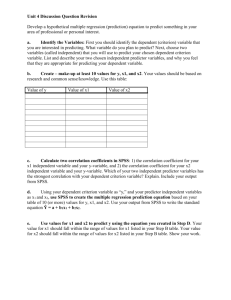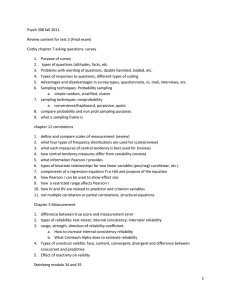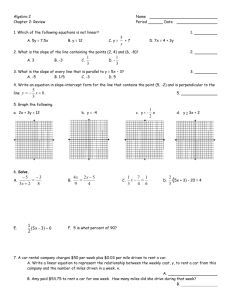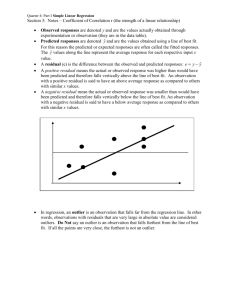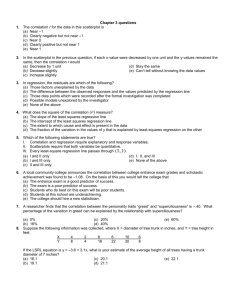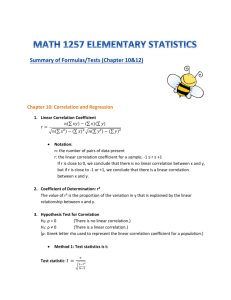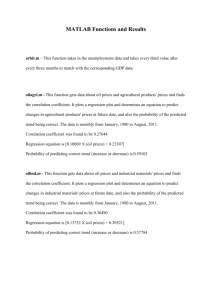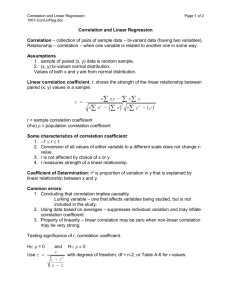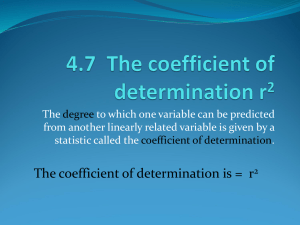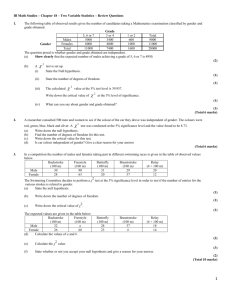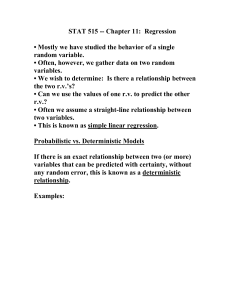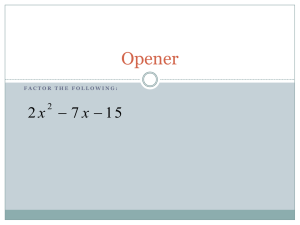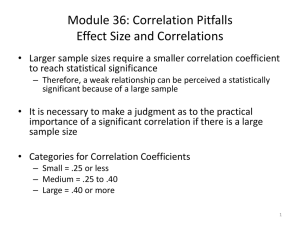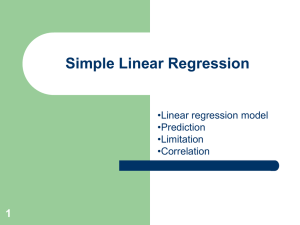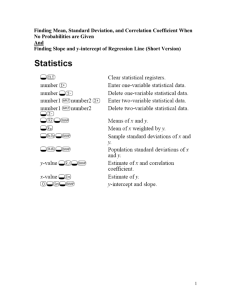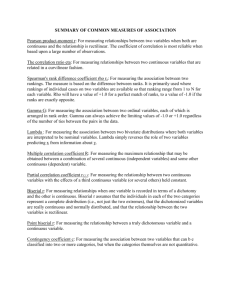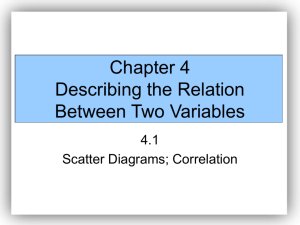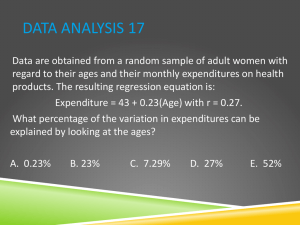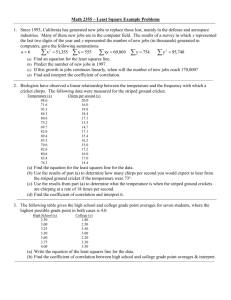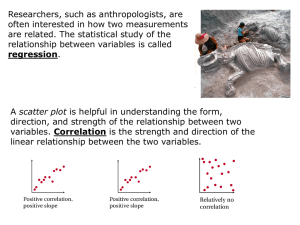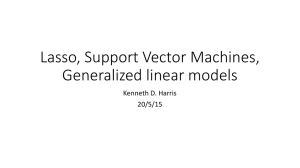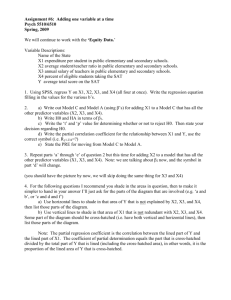Chap 6 Predicting Future Performance
advertisement
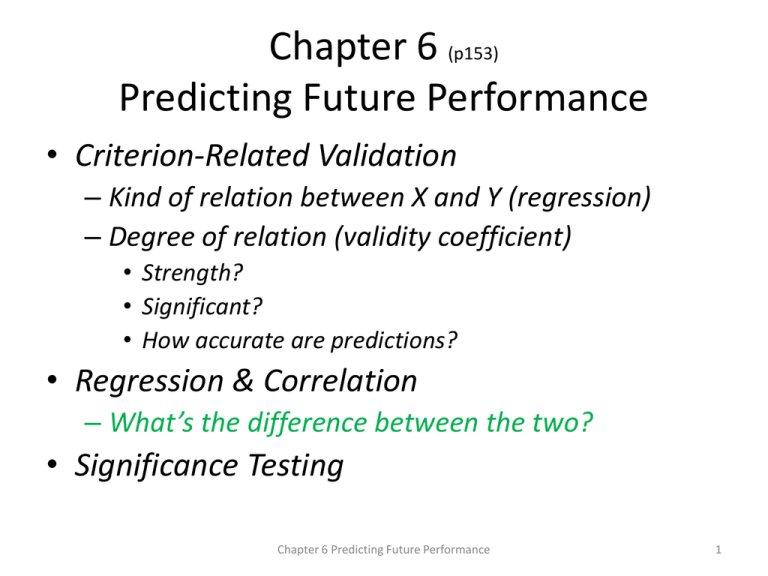
Chapter 6 (p153) Predicting Future Performance • Criterion-Related Validation – Kind of relation between X and Y (regression) – Degree of relation (validity coefficient) • Strength? • Significant? • How accurate are predictions? • Regression & Correlation – What’s the difference between the two? • Significance Testing Chapter 6 Predicting Future Performance 1 • VALIDATION AS HYPOTHESIS TESTING • BIVARIATE REGRESSION – Linear Functions • MEASURES OF CORRELATION – Basic Concepts in Correlation • • • • • Residual and Error of Estimate Generalized Definition of Correlation Coefficient of Determination Third Variables Null Hypothesis and its Rejection Chapter 6 Predicting Future Performance 2 – The Product-Moment Coefficient of Correlation – What are these? Explain each • • • • • • • Non-linearity Homoscedasticity and Equality of Prediction Error Correlated Error Unreliability Reduced Variance Group Heterogeneity Questionable Data Points • A summary Caveat – – – – Don’t over-estimate what you have Sometimes you can’t control everything You may need to get more data Work with what you have Chapter 6 Predicting Future Performance 3 – Statistical Significance • The Logic of Significance Testing – Under what conditions could a low validity coefficient of .20 be useful? • Type I and Type II Errors and Statistical Power – Which is more important I or II? – How can you control power? – What are the three things power is affected by? » Explain why for each Chapter 6 Predicting Future Performance 4 • COMMENT ON STATISTICAL PREDICTION – What is the standard error of estimate? – Why is it an important consideration for prediction? – What is a problem with restriction range restriction in • The predictor • The criterion – What could be done about it? – Give an example of a curvilinear relationship between a predictor and creiterion Chapter 6 Predicting Future Performance 5
